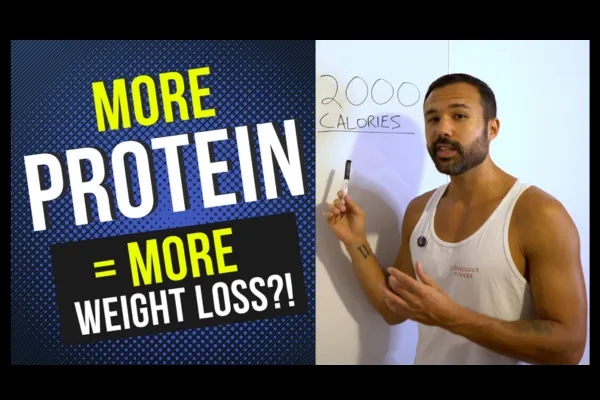
Does eating more protein help you lose weight?
In today's blog, we're diving into a fascinating comparison between two different diets. Both diets consist of 2,000 calories each, but one will help you burn more total calories and allow you to be leaner.
Curious how? Let's explore the key difference.
The secret lies in one macronutrient: protein. The amount of protein in each diet makes a significant impact. Let's look at diet number one with 2,000 calories but only 50 grams of protein. In contrast, diet number two contains 2,000 calories but 100 grams of protein.
So, why does this protein difference matter? It all comes down to the thermic effect of food. When we consume protein, carbohydrates, or fats, our bodies use energy to digest them. This process increases our metabolism. With more protein in your diet, your body will burn more calories during digestion compared to fats or carbohydrates.
Just to test your knowledge—how many calories are in one gram of protein? If you guessed four, you're right. In diet number one, 50 grams of protein equal 200 calories from protein. In diet number two, 100 grams of protein equal 400 calories from protein.
Different macronutrients—proteins, fats, and carbohydrates—burn varying percentages of energy during digestion. Protein has the highest thermic effect, burning 20-30% of its total calories through digestion. For example, if we take 200 calories from protein and multiply by 20%, we burn 40 calories just from digestion. This means you burn more calories without exercising, simply by increasing protein intake!
Over the course of a month, this adds up. Burning an extra 40 calories each day totals an additional 1,200 calories burned per month. Here's another quiz question: how many calories are in one pound of fat? The answer is 3,500 calories. So, by enhancing your protein intake, you could lose about one-third of a pound in a month and a full pound in three months.
Increased protein doesn't just enhance the thermic effect; it also helps you feel fuller and more satisfied, reducing the need for snacks. High protein diets often incorporate whole, clean foods rather than processed carbs and fats, aiding in lean muscle mass building.
Combined with resistance training, a higher protein intake contributes to muscle growth, which in turn burns more calories at rest than fat does. Building lean muscle mass supports insulin response, bone health, and increases your overall metabolic rate.
Even with the same caloric intake, increasing protein helps burn more calories without additional effort. For instance, to burn an extra 40 calories through movement, you might need 1,000 to 2,000 extra steps. While increasing physical activity is beneficial, focusing on diet, particularly protein intake, is foundational.
If you want to effortlessly burn more calories and get leaner, consider upping your protein intake. For guidance, check out my high protein food guide and Power Meal Formula Guide.
These resources provide high protein, plant-based food options and meal plans to help you achieve your goals.
Much love,
Bryan Bell
Conscious Fitness